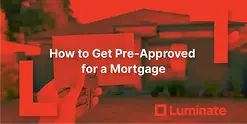Bank or Mortgage Adviser? Complete Guide for NZ First-Home Buyers
 By
Trent Bradley
·
24 minute read
By
Trent Bradley
·
24 minute read

If you're buying your first home in New Zealand, one of the earliest and most important decisions you'll face is: Who should help me with my home loan? Should you walk into your bank branch and speak with their lending team, or should you work with an independent mortgage adviser?
Mortgage advisers in NZ work with 15-25+ lenders vs. one bank direct, typically cost nothing (lender-paid commission), and provide expert guidance through the entire process. For first-home buyers, advisers offer better rates, more options, and personalized support. 70%+ of NZ first-home buyers now use advisers.
Table of Contents
- What Does a Mortgage Adviser Actually Do?
- What Happens When You Go Directly to a Bank?
- Why First-Home Buyers Increasingly Choose Advisers
- Side-by-Side Comparison: Bank Direct vs Mortgage Adviser
- How to Decide: A Simple Framework
- Real-World Examples: How Advisers Make the Difference
- When Going Direct to a Bank Might Make Sense
- Frequently Asked Questions About Banks vs Mortgage Advisers
- The True Cost: What You Actually Pay
- Making Your Decision: A Practical Checklist
- Why Luminate Believes in the Adviser Model
- Final Thoughts: Making the Right Choice for You
- Ready to Explore Your Options?
Key Takeaways
- Mortgage advisers provide access to 15-25+ lenders compared to one bank when going direct, significantly increasing your loan options and approval chances
- Adviser services are free in 95%+ cases—lenders pay the commission whether you use an adviser or not, so going direct means forgoing professional help that's already paid for
- Advisers often secure equal or better interest rates than banks (0.10-0.25% better), plus additional benefits like higher cashback offers and fee waivers
- Complex situations (self-employed, small deposits, variable income, credit issues) strongly benefit from advisers who know which lenders accept what criteria
- Mortgage advisers save you 20-30+ hours of research, applications, and coordination while providing expert guidance through the entire purchase process
- 70%+ of NZ first-home buyers now use mortgage advisers due to better outcomes, ongoing support, and proactive rate reviews throughout homeownership
- Going direct to a bank makes sense only for those with deep industry knowledge, existing strong bank relationships, or extremely simple refinancing situations
At first glance, going directly to your bank might seem like the obvious choice. After all, they already know you, you probably have accounts with them, and it feels like the path of least resistance. It's familiar, convenient, and you trust them.
But there's significantly more to consider than convenience. This decision affects:
- How many loan options you'll see
- Whether you get the best interest rate available
- How your loan is structured for your specific situation
- The level of support you receive throughout the process
- Your ongoing relationship and loan management
As mortgage advisers who work exclusively with first-home buyers across New Zealand every day, we're constantly asked: What's the real difference? Is there actually a benefit to using an adviser? Will it cost me anything? Am I missing out if I just go to my bank?
This comprehensive guide breaks down everything you need to know to make the right choice for your situation—honestly, thoroughly, and without the sales pitch.
What Does a Mortgage Adviser Actually Do?
Before comparing options, let's clarify exactly what a mortgage adviser is and what they do.
The Role of a Mortgage Adviser
A mortgage adviser (also called a mortgage broker—the terms are interchangeable in New Zealand) is a licensed financial professional who helps you find, apply for, and secure a home loan.
The critical distinction: They don't work for any particular bank. They work for you.
What Mortgage Advisers Provide
Comprehensive Financial Assessment:
- Review your income, expenses, debts, and savings
- Assess your borrowing capacity across multiple lenders
- Identify potential issues that might affect approval
- Determine optimal deposit structure
Market Research and Comparison:
- Access 15-25+ lenders with different products and criteria
- Compare interest rates, features, and terms
- Identify which lenders best suit your specific situation
- Negotiate on your behalf with banks
Loan Structuring Strategy:
- Design loan structure tailored to your goals and cash flow
- Advise on fixed vs. floating split
- Recommend features like offset accounts or revolving credit
- Plan for future changes (children, career moves, renovations)
Application Management:
- Prepare and submit applications to chosen lender(s)
- Manage all paperwork and documentation
- Liaise with lenders, lawyers, and real estate agents
- Track progress and troubleshoot issues
- Coordinate timing for settlement
Ongoing Support:
- Monitor your loan performance over time
- Contact you before fixed rates expire
- Review and recommend refinancing when beneficial
- Adjust structure as your circumstances change
- Provide ongoing advice throughout homeownership
How Mortgage Advisers Are Paid
In 95%+ of cases, there's no cost to you. Mortgage advisers earn commission from the lender when your loan settles:
Upfront commission: Typically 0.60%-0.85% of the loan amount
- Example: On a $500,000 loan, the lender pays the adviser $3,000-$4,250
- This is paid by the lender, not added to your loan
- Does not increase your interest rate or loan amount
Trail commission: Small ongoing commission (0.10%-0.15% annually)
- Paid while your loan remains active with that lender
- Incentivizes advisers to provide ongoing service and support
- Again, paid by the lender, not you
When fees might apply:
- Very small loans (under $50,000)
- Exceptionally complex situations requiring significant extra work
- Commercial or business lending
- These scenarios are rare for first-home buyers and must be disclosed upfront
Important to understand: The lender pays this commission regardless of whether you use an adviser or go direct. It's built into the bank's business model. The question isn't whether you pay for advisory services—it's whether you receive them.
What Happens When You Go Directly to a Bank?
Understanding the direct banking route helps clarify the differences.
The Direct Banking Experience
When you approach a bank directly, you'll typically work with:
- A mobile mortgage manager who visits you at home or work
- A lending specialist at a branch
- A phone-based lending team if applying online
What Banks Offer Directly
Single-lender products:
- Access only to that bank's mortgage products
- That bank's current interest rates
- That bank's specific lending criteria and policies
Standard loan structures:
- Common loan products the bank promotes
- Pre-packaged solutions rather than customized strategies
- Limited creative problem-solving for complex situations
Self-managed process:
- You're responsible for gathering and submitting documents
- You track application progress
- You coordinate between lawyer, agent, and lender
- You handle any issues or questions that arise
When Banks Decline Applications
If your application doesn't meet that bank's criteria:
- They decline, and you start from scratch with another bank
- You may not know why you were declined (credit issue? income calculation? property valuation?)
- Each new application is a fresh start with no guarantee of different outcome
- Multiple declines can damage your credit score
The bank has no incentive to suggest alternatives because they can only offer their own products. If you don't fit their policies, they simply say no.
Why First-Home Buyers Increasingly Choose Advisers
Let's explore the specific advantages that have led to 70%+ of New Zealand first-home buyers now working with mortgage advisers.
1. Access to Multiple Lenders = More Options
The adviser advantage:
Most established mortgage advisers work with 15-25+ lenders including:
Major banks:
- ANZ
- ASB
- BNZ
- Westpac
- Kiwibank
Second-tier banks:
- TSB Bank
- SBS Bank
- The Co-operative Bank
- Heartland Bank
Non-bank lenders:
- Pepper Money
- Liberty Financial
- Resimac
- Bluestone
- Avanti Finance
Specialist lenders:
- Lenders focusing on self-employed borrowers
- Lenders with flexible income assessment
- Lenders accepting non-traditional deposits
- Lenders for unique property types
Why this matters:
Different lenders have different:
- Lending criteria (some are stricter, others more flexible)
- Income assessment methods (crucial for self-employed, contractors, or variable income)
- Deposit requirements (some accept 5%, others require 20%)
- Property criteria (some lend on apartments, others don't)
- Interest rates (can vary by 0.25-0.50% or more)
- Loan features (offset accounts, revolving credit, redraw facilities)
Real-world impact:
If your income is slightly variable, one bank might decline you while another approves you easily. If you have a 10% deposit, some lenders won't talk to you while others welcome your application. An adviser knows which lender suits which situation.
Example: Emma is self-employed with strong income but only 18 months of trading history. Her regular bank requires 2 years minimum. Her adviser places her with a lender that accepts 18 months for established businesses in low-risk industries. Result: Approved instead of waiting another 6 months.
2. Loan Structuring Tailored to Your Life
Beyond the basic loan:
Banks typically offer standard products:
- Fixed rate options (1-5 years)
- Floating rate option
- Basic structure with principal and interest repayments
Advisers go deeper:
A quality adviser considers:
- Your current cash flow and expenses
- Your short-term goals (1-3 years)
- Your long-term plans (5-10+ years)
- Potential life changes (children, career shifts, renovations)
- Your risk tolerance and financial personality
They then structure accordingly:
Example structures:
For someone prioritizing flexibility:
- 70% fixed (stability) / 30% revolving credit (flexibility)
- Ability to make extra payments when possible
- Access to equity for future needs
For someone prioritizing certainty:
- 100% fixed for maximum payment predictability
- Longer fixed term (3-5 years)
- Budget-focused approach
For someone building wealth:
- Split across multiple fixed terms (laddering)
- Offset account to reduce interest while maintaining liquidity
- Structure that facilitates future investment property purchase
The bank's approach: Here are our products. Which one do you want?
The adviser's approach: Here's your situation. Let's build the optimal solution.
3. Expert Guidance Through the Entire Process
Buying your first home is complex, stressful, and filled with unfamiliar terminology and processes. A good mortgage adviser doesn't just arrange your loan—they become your guide through the entire journey.
Pre-Purchase Phase:
- Help you understand how much you can realistically borrow
- Explain deposit requirements and options (KiwiSaver, gifts, savings)
- Guide you through First Home Loan eligibility if applicable
- Provide pre-approval so you know your budget before house hunting
- Connect you with reputable lawyers, insurance advisers, builders
During Offer and Due Diligence:
- Advise on appropriate offer conditions (finance, building inspection)
- Review building reports and LIM reports for lending implications
- Coordinate with your lawyer on timing
- Manage communications with lenders and real estate agents
- Troubleshoot any issues that arise
Leading to Settlement:
- Ensure all documentation is complete and correct
- Coordinate KiwiSaver withdrawal timing if applicable
- Arrange insurance before settlement
- Confirm settlement date works for all parties
- Be available to answer questions and ease anxiety
After Settlement:
- Check in regularly to ensure loan is performing as expected
- Monitor rate changes and market conditions
- Proactively contact you before fixed rates expire
- Recommend adjustments when beneficial
- Support with future refinancing, renovations, or investment purchases
The bank's approach: We're here if you need us. Call our contact center.
The adviser's approach: We're proactively managing your financial wellbeing throughout homeownership.
4. Expertise in Complex Situations
First-home buyers come in all shapes and sizes. While some have straightforward situations (full-time employment, 20% deposit, excellent credit), many don't.
Common "complex" situations:
- Self-employed or contractors (variable income, less than 2 years trading)
- Small deposits (5-10% saved, need low-deposit options)
- Variable income (commission-based, seasonal work, multiple jobs)
- Credit history issues (past defaults, recent credit problems, limited credit history)
- Buying with flatmates (rental income from boarders)
- Unusual properties (apartments, cross-lease, leasehold, off-grid)
- Buying with parents (guarantor situations, gifted deposits)
- Visa holders (work visas, residency in process)
Banks often decline these situations because they don't fit standard policies or the lending officer isn't familiar with exceptions and workarounds.
Advisers excel here because:
- They know which lenders are flexible in which areas
- They understand how to present complex situations favorably
- They know the right terminology and documentation to use
- They have relationships with credit managers who can make exceptions
- They've dealt with hundreds of similar cases
Example: James works full-time but also has a side business earning $15,000 annually. His bank said they can't consider the side income (less than 2 years). His adviser structured the application to use only his full-time income for one lender, but included the side income for another lender with more flexible policies, resulting in $35,000 higher borrowing capacity and approval.
5. Better Interest Rates and Deals (Often)
Common misconception: "Banks give their best rates. Advisers just charge extra."
Reality: Advisers often secure equal or better rates than going direct, plus additional value.
Why advisers can get competitive rates:
Volume matters:
- Established advisers place millions in loans annually
- Banks compete for this business
- Advisers who deliver consistent volume get preferential treatment
Negotiation power:
- Advisers know current market rates across all lenders
- They can credibly say "Lender X is offering 0.15% better"
- Banks will often match or beat competitors to win the business
Access to unadvertised rates:
- Some banks have discretionary rates below published rates
- Advisers know how to access these
- Direct customers often don't even know they exist
Additional value beyond rate:
Even when rates are identical, advisers help you:
- Access better cashback offers (often $1,000-$2,000 more)
- Avoid or reduce fees
- Get better loan features included
- Structure optimally to minimize lifetime interest costs
Real example: Michael went directly to his bank and was offered 6.75% fixed 2 years with $3,000 cashback. His adviser got him 6.59% with $4,000 cashback from a different bank, saving him approximately $1,600 in interest over 2 years plus $1,000 extra cashback. Total benefit: $2,600 in a "simple" situation.
6. Time Savings and Stress Reduction
The hidden cost of going direct: Your time and mental energy.
What going direct to a bank requires:
- Researching and understanding different loan products
- Comparing rates across multiple banks (visiting each one)
- Gathering documentation separately for each application
- Learning each bank's application portal or process
- Chasing up progress and responding to queries
- Coordinating between bank, lawyer, agent, and insurer
- Problem-solving when issues arise
- Making sense of complex lending terminology and conditions
Estimated time investment: 20-40+ hours across the entire process
What working with an adviser requires:
- One initial meeting (1-2 hours) to explain your situation
- Providing documentation once (adviser submits to lenders)
- Answering adviser's questions as needed
- Making final decision on which lender to use
- Signing documents
Estimated time investment: 5-10 hours total
The adviser handles everything else:
- Research and comparison
- Application preparation and submission
- Coordination with all parties
- Progress tracking and problem-solving
- Expert guidance at each decision point
For first-home buyers juggling work, life, and the stress of buying property, this time savings is invaluable.
7. Ongoing Support After Purchase
Your relationship with your mortgage doesn't end at settlement—it's just beginning. Yet this is where the bank vs. adviser difference becomes starkest.
With banks:
- Reactive support only: You must contact them for reviews
- Generic communications: Mass emails when rates are expiring
- No proactive optimization: They won't tell you if a competitor has better rates
- No relationship continuity: You'll speak with different people each time
With quality advisers:
- Proactive reviews: They contact you before rates expire (usually 60-90 days ahead)
- Market monitoring: They track rate movements and notify you of opportunities
- Ongoing optimization: They recommend refinancing or restructuring when beneficial
- Relationship continuity: You work with the same person who knows your situation
- Life-stage guidance: They help as your circumstances change (kids, job changes, renovations)
Real scenario:
Year 1: Adviser sets up your loan
Year 2: Adviser contacts you 90 days before your 2-year fixed rate expires, reviews your equity growth, and negotiates a 0.20% better rate by threatening to move to competitor
Year 3: Adviser notices rates dropping and recommends breaking your fixed rate to re-fix lower, calculating the break fee is worth the long-term savings
Year 5: You want to renovate. Adviser structures additional borrowing against your increased equity, securing construction finance at competitive rates
Year 7: You're ready to upgrade homes. Adviser helps you navigate keeping your first home as an investment property while buying your next home
This ongoing relationship and support continues throughout your homeownership journey—at no additional cost to you.
Side-by-Side Comparison: Bank Direct vs Mortgage Adviser
| Factor | Going Direct to Bank | Using a Mortgage Adviser |
|---|---|---|
| Number of Lenders | 1 bank only | 15-25+ lenders |
| Interest Rates | Standard advertised rates | Often same or better, with negotiation power |
| Loan Options | That bank's products only | Wide range across multiple lenders |
| Cost to You | Free | Free in 95%+ of cases |
| Application Support | Self-managed with bank guidance | Full-service support and management |
| Specialist Knowledge | That bank's policies | Deep knowledge of all lenders' criteria |
| If Declined | Start over at new bank | Adviser pivots to suitable alternatives |
| Time Required | 20-40+ hours of your time | 5-10 hours of your time |
| Loan Structure Advice | Standard options presented | Tailored strategy for your situation |
| First-Home Buyer Expertise | Variable by lending officer | Specialized first-home buyer focus |
| Ongoing Support | Must contact bank to review | Proactive reviews and ongoing advice |
| Advocacy | Bank represents their interests | Adviser represents your interests |
| Cashback/Incentives | Standard bank offers | Access to multiple offers, can maximize |
| Complex Situations | May decline or struggle | Expertise in varied situations |
| Rate Expiry Management | Generic email reminder | Personal outreach with strategy |
How to Decide: A Simple Framework
Use this decision tree to determine which option suits your situation:
Question 1: Is your financial situation straightforward?
Straightforward means ALL of these:
- ✓ Standard full-time employment
- ✓ Strong credit history (no defaults, bankruptcies, or issues)
- ✓ 20%+ deposit saved
- ✓ No unusual income sources
- ✓ No existing debts or minimal debts
- ✓ Standard property type (house or townhouse)
→ If YES to all: Either option could work, but adviser still offers more choice and potentially better terms
→ If NO to any: Adviser strongly recommended - they excel at complex situations
Question 2: Do you have time to research and manage applications yourself?
Consider honestly:
- Can you dedicate 20-40 hours over 2-3 months?
- Are you comfortable navigating financial jargon?
- Do you enjoy research and comparison?
- Can you coordinate multiple parties effectively?
→ If YES: You could go direct, but consider the opportunity cost of your time
→ If NO: Adviser recommended - they save you dozens of hours
Question 3: Are you confident comparing loan structures and features?
Can you confidently answer:
- What's the optimal fixed vs. floating split for your situation?
- Should you use revolving credit or offset accounts?
- What's the right fixed rate term given rate forecasts?
- How should you structure for future flexibility?
→ If YES: You might navigate direct banking well
→ If NO: Adviser recommended - expert guidance prevents costly mistakes
Question 4: Do you value having someone advocate for you?
Advocacy means:
- Someone working solely in your interest
- Someone who negotiates on your behalf
- Someone who provides unbiased advice
- Someone who manages the process end-to-end
→ If YES: Adviser is the clear choice
→ If NO: Consider whether saving potential adviser time is worth navigating alone
Question 5: Is this your first home purchase?
→ If YES: Adviser strongly recommended - first-time buyers benefit most from expert guidance through unfamiliar territory
→ If NO: You may have experience, but advisers still offer significant value through market access and ongoing support
The Verdict
✅ Choose a Mortgage Adviser if you want:
- Maximum choice across multiple lenders
- Expert guidance through complex or unfamiliar processes
- Someone working solely in your best interest
- Significant time savings and stress reduction
- Ongoing support beyond just the initial loan
- This describes 70%+ of first-home buyers
⚠️ Consider Going Direct if:
- You have deep banking and mortgage knowledge
- You work in finance or banking industry
- Your situation is exceptionally simple and straightforward
- You have a strong existing relationship with a specific bank manager
- You genuinely prefer managing everything yourself
- This describes a small minority of buyers
Real-World Examples: How Advisers Make the Difference
Example 1: The Self-Employed Buyer
Sarah's Situation:
- Freelance graphic designer, self-employed 2 years
- Income varies: $55,000-$85,000 annually (averages $72,000)
- $50,000 deposit saved (12.5% of $400,000)
- Excellent credit history
- Applying alone
Approach 1 - Direct to Her Bank (ANZ):
Sarah went to her bank where she'd held accounts for 10 years. The mobile mortgage manager reviewed her application and said:
"Unfortunately, your income is too variable. We need to see consistent income for self-employed applicants, and you don't meet our 2-year trading requirement. Additionally, your 12.5% deposit is below our 15% minimum for self-employed borrowers. Come back in another 6 months after you've established more history and saved more."
Result: Declined. Sarah felt discouraged and believed homeownership was years away.
Approach 2 - Through a Mortgage Adviser:
Sarah contacted a mortgage adviser recommended by a friend. The adviser:
- Reviewed 18 months of Sarah's bank statements showing consistent deposit patterns
- Averaged her conservative income at $68,000 (using her lower earnings months)
- Identified a lender (The Co-operative Bank) that accepts 18-month trading history for established sole traders in low-risk industries
- Structured her application emphasizing her consistent client base, forward bookings, and stable cash flow
- Submitted with comprehensive documentation including client contracts and forward invoices
Result: Approved within 3 weeks for $370,000 (total purchase $420,000), allowing Sarah to buy her first home immediately rather than waiting another year.
Sarah's reflection: "I genuinely thought I'd be renting for another 2-3 years minimum. My adviser saw opportunities where my bank only saw problems. He knew exactly which lender to approach and how to present my situation. Worth every bit of the zero dollars I paid for his help!"
Example 2: The Borderline Deposit Situation
James & Emma's Situation:
- Combined income: $145,000 (both employed full-time)
- Deposit saved: $56,000 (8% of $700,000 target)
- Strong savings history over 3 years
- Both first-home buyers
- Excellent credit history
Approach 1 - Direct to Bank (Westpac):
The bank lending specialist told them:
"You need a minimum 10% deposit for this loan, which is $70,000. You're $14,000 short. I'd recommend continuing to save for another 8-10 months, then come back to us. Alternatively, if you can get a family gift for the shortfall, we could proceed."
Result: They felt defeated. They didn't want to ask family for money, and waiting another 8-10 months felt like forever in a rising market.
Approach 2 - Through a Mortgage Adviser:
The adviser immediately recognized they qualified for the Kāinga Ora First Home Loan:
- Verified eligibility: Income under $150,000 cap ✓, first-home buyers ✓, target property within regional price cap ✓
- Calculated deposit: With 8% ($56,000), they exceeded the 5% minimum required
- Checked KiwiSaver: They had combined $45,000 available, which formed most of their deposit
- Submitted application to SBS Bank (a First Home Loan participating lender)
- Approved within 3 weeks for $644,000 (total purchase $700,000)
Result: Bought immediately with their 8% deposit using First Home Loan. No family assistance needed. No waiting 8-10 months.
Market context: In the 8 months they would have spent saving to reach 10%, property prices in their target area increased by 6%. Buying sooner saved them approximately $42,000 (6% of $700,000) that they would have paid due to price appreciation.
James & Emma's reflection: "We were literally about to wait another year because our bank said we had to. Our adviser said 'you can buy now' and explained options we didn't even know existed. We saved tens of thousands by buying earlier."
Example 3: The Rate Optimization
Michael's Situation:
- Employed professional, stable income $95,000
- $100,000 deposit saved (20% of $500,000)
- Single buyer
- Straightforward application, excellent credit
- Already had pre-approval from Westpac
Approach 1 - Direct to Westpac:
Westpac offered:
- Interest rate: 6.75% fixed 2 years
- Cashback: $3,000
- Standard table loan structure
- No offset or revolving credit
Michael thought this was reasonable and was about to accept.
Approach 2 - Through a Mortgage Adviser (second opinion):
Before accepting, Michael's friend convinced him to get a second opinion from an adviser. The adviser:
- Shopped his application to 4 lenders (Westpac, ANZ, ASB, Kiwibank)
- Negotiated rates: Used competition to drive better offers
- Best offer obtained:
- Interest rate: 6.59% fixed 2 years (0.16% better than Westpac)
- Cashback: $4,000 ($1,000 more than Westpac)
- Structured with: $450,000 standard loan + $50,000 revolving credit for flexibility
- No additional fees
Result over 2 years:
- Interest savings: Approximately $1,600 (from 0.16% lower rate)
- Extra cashback: $1,000
- Better loan flexibility: Revolving credit allows extra payments without penalty
- Total tangible benefit: $2,600+
Michael's reflection: "I thought I had a good deal from my bank. The adviser got me better in every way—rate, cashback, and structure—without any cost to me. I almost didn't bother getting a second opinion. So glad I did."
Example 4: The Ongoing Support Difference
Lisa's Situation:
- Bought first home 18 months ago with $80,000 deposit
- Original loan: $520,000 at 6.85% fixed 2 years
- Coming off initial fixed rate soon
- Home now valued at $620,000 (price appreciation)
- Still has same job, similar income
Approach 1 - Bank Direct Scenario:
Lisa received a standard email from her bank 60 days before her fixed rate expired:
"Dear Lisa, Your fixed rate expires in 60 days. Here are your options:
- 6.89% fixed 1 year
- 6.79% fixed 2 years
- 6.69% fixed 3 years
- 6.99% floating
Please log in to select your preferred option or call us."
Lisa looked at the options, thought 2 years at 6.79% seemed reasonable (slightly lower than her expiring 6.85%), and selected it online. She thought she'd done well.
Result: Re-fixed at 6.79% for 2 years with her existing bank. No changes to loan structure. No exploration of alternatives.
Approach 2 - Mortgage Adviser Scenario:
Lisa's adviser called her 90 days before her rate expired:
"Hey Lisa, your rate expires in 90 days. Let's review your situation:
- Your home value has increased to $620,000, so you now have $180,000 equity (29%)—excellent!
- Your current bank is offering 6.79% for 2 years, but I can get you 6.49% for 1 year at Kiwibank
- I recommend the 1-year term because rates are trending down—we'll likely get even better in 12 months
- Given your increased equity, we could also add an offset account to minimize interest
- We'll also get you a $2,000 cashback from Kiwibank for switching
Want me to proceed with this?"
Lisa agreed. The adviser:
- Managed the full refinancing process
- Coordinated with her lawyer
- Ensured no break fees applied (was within 60-day window)
- Set reminder to review again before next expiry
Result:
- Interest rate: 6.49% (0.30% better than staying)
- Annual interest savings: Approximately $1,500
- Cashback received: $2,000
- Better position for next rate drop in 12 months
- Ongoing relationship and advice continued
- Total benefit: $3,500+ in Year 3 alone
Lisa's reflection: "I thought I was being smart managing my own mortgage. But my adviser saved me thousands with a single phone call. He saw opportunities I didn't even know existed. Now I understand why people say advisers are worth it—and I'm still not paying him a cent!"
When Going Direct to a Bank Might Make Sense
In the spirit of honesty and fairness, let's discuss genuine scenarios where going directly to a bank might be appropriate:
Scenario 1: You Work in Banking or Finance
If you're a lending officer, financial adviser, mortgage professional, or work in banking and deeply understand:
- Loan structures, features, and products intimately
- Current rate movements and market dynamics
- Lender policies, criteria, and exceptions
- Application processes and documentation requirements
You may efficiently navigate the system yourself and have industry connections that provide benefits.
Scenario 2: You Have a Strong Personal Relationship
If you have a longstanding relationship with a specific bank manager who:
- Has supported you through previous financial decisions
- Knows your situation intimately and personally
- Has proven their commitment to your best interests
- Provides ongoing advice and advocacy (not just transactional service)
That personal relationship has genuine value that might outweigh adviser benefits.
Scenario 3: You're an Experienced Property Investor
If you've already purchased 3+ properties, you likely:
- Understand lender criteria and how to meet them
- Know how to structure complex loans
- Have established relationships with banks' credit teams
- Can navigate the process efficiently
Your experience and knowledge reduce the adviser value proposition.
Scenario 4: Extremely Simple Refinance
If you're simply:
- Refinancing with your current lender
- No change to loan amount or structure
- Just updating your fixed rate term
- No complications or special circumstances
This is straightforward enough that adviser assistance may not add significant value.
However, even in these scenarios:
Getting a second opinion from an adviser before finalizing can:
- Confirm you're getting competitive terms
- Identify opportunities you might have missed
- Provide peace of mind you've explored all options
- Cost you nothing (they're free consultations)
Bottom line: For the vast majority of first-home buyers—particularly those with any complexity, limited experience, or desire for expert guidance—a mortgage adviser provides significantly more value than going direct.
Frequently Asked Questions About Banks vs Mortgage Advisers
Do mortgage advisers charge fees in New Zealand?
In most cases, no. Mortgage advisers in New Zealand are paid a commission by the lender once your loan settles, typically 0.60%-0.85% of the loan amount. This cost is borne by the lender, not you. Advisers must disclose upfront if any fees apply, which is rare and usually only for very small loans or highly complex applications.
Can mortgage advisers get better interest rates than banks?
Often yes. Mortgage advisers who place significant volume with lenders can sometimes negotiate rates 0.10%-0.25% better than what's publicly advertised. Even when rates are the same, advisers help you access better loan structures, cashback offers, and fee waivers that provide overall better value.
How many lenders do mortgage advisers have access to?
Most established mortgage advisers in NZ work with 15-25+ lenders including all major banks (ANZ, ASB, BNZ, Westpac, Kiwibank), second-tier banks (TSB, SBS, Co-operative Bank), and non-bank lenders (Pepper Money, Liberty, Resimac). This gives you significantly more options than going to one bank.
Are mortgage advisers regulated in New Zealand?
Yes. All mortgage advisers must be licensed under the Financial Markets Conduct Act 2013 and registered on the Financial Service Providers Register (FSPR). They must meet ongoing education requirements, follow a Code of Professional Conduct, and maintain professional indemnity insurance.
What's the difference between a mortgage adviser and a mortgage broker?
In New Zealand, these terms are used interchangeably—there's no official distinction. Both refer to licensed professionals who help you find and secure home loans from multiple lenders. Some prefer "adviser" as it emphasizes the advisory role beyond just brokering.
Do banks give better deals to their existing customers?
Not necessarily. While banks may offer loyalty gestures, they often reserve their best rates and deals for new customers to attract business. Your existing bank has no particular incentive to offer you better terms than what they advertise, whereas an adviser can shop your application to multiple lenders competing for your business.
Can I still choose my own bank if I use a mortgage adviser?
Absolutely. A good mortgage adviser will present options from multiple lenders and explain the pros and cons of each, but the final decision is always yours. If you have a strong preference for a particular bank, your adviser can work with that lender on your behalf while ensuring you get the best possible terms.
How long does the mortgage process take with an adviser vs. a bank?
Timelines are similar (typically 2-4 weeks from application to approval), but advisers often expedite the process because they know exactly what documentation each lender needs, can troubleshoot issues quickly, and maintain direct relationships with bank credit teams. Going direct to a bank may involve more back-and-forth if you're unfamiliar with their requirements.
What happens if my mortgage adviser recommends a lender that declines me?
Your adviser will immediately pivot to other suitable lenders from their panel. This is a key advantage—if you go directly to a bank and get declined, you start over from scratch. With an adviser, they can quickly assess which alternative lender is most likely to approve your application and submit there instead.
Do mortgage advisers only help with the loan, or do they assist with other aspects?
Quality mortgage advisers provide comprehensive support including: pre-approval strategy, deposit planning, KiwiSaver withdrawal guidance, First Home Loan applications, coordinating with lawyers and real estate agents, insurance setup, and ongoing loan reviews. They act as your guide through the entire home buying process, not just the loan application.
The True Cost: What You Actually Pay
Let's be completely transparent about the economics of mortgage advisory services.
Understanding Mortgage Adviser Compensation
How lenders pay advisers:
When your loan settles, the lender pays your adviser a commission:
Upfront commission:
- Amount: Typically 0.60%-0.85% of the loan amount
- Example: $500,000 loan = $3,000-$4,250 commission
- Who pays: The lender (bank or non-bank institution)
- Impact on you: None—not added to your loan amount or interest rate
Trail commission (ongoing):
- Amount: Typically 0.10%-0.15% annually
- Duration: Paid while your loan remains with that lender
- Purpose: Incentivizes ongoing service and relationship management
- Who pays: The lender
- Impact on you: None—built into lender's business model
The Critical Point Most People Miss
The lender pays this commission whether you use an adviser or go direct.
This cost is built into every bank's business model. They budget for customer acquisition costs regardless of the channel. Think of it this way:
Going direct to a bank:
- The bank keeps the acquisition cost in their profit margin
- You do all the work (research, applications, coordination)
- You receive only that bank's products and rates
- You have no ongoing advisory relationship
Using a mortgage adviser:
- The bank pays the same acquisition cost to your adviser
- Your adviser does all the work (research, applications, coordination)
- You receive access to 15-25+ lenders with expert comparison
- You have ongoing advisory relationship and support
You're not saving money by going direct. You're simply forgoing professional services that are already paid for.
When Adviser Fees Might Apply
In these rare situations, advisers may charge a fee:
Very small loans (under $50,000):
- Commission too small to justify work involved
- Adviser may charge flat fee ($500-$1,000)
- Must be disclosed upfront
Highly complex applications:
- Require exceptional time and expertise
- Multiple lender submissions and negotiations
- Complex structuring with trusts or companies
- Fee if charged would be disclosed upfront
Commercial or specialized lending:
- Different fee structures than residential
- Often negotiated based on loan complexity
For standard first-home buyer residential lending: 95%+ of cases involve no fee to you.
The Value Proposition
Even in the rare cases where a fee applies, consider:
Adviser fee: $800
Benefits received:
- Better interest rate saving $2,000+ annually
- Higher cashback: $1,000+
- Optimal loan structure saving thousands long-term
- Time savings: 20-30 hours at your hourly rate
- Stress reduction: Priceless
- Ongoing support: Continued value for years
The math makes sense.
Making Your Decision: A Practical Checklist
Use this final checklist to make your decision with confidence:
✅ Choose a Mortgage Adviser if:
- ☐ This is your first home purchase
- ☐ You have any complexity in your situation (self-employed, small deposit, credit issues, variable income)
- ☐ You value having maximum choice across multiple lenders
- ☐ You want expert guidance through an unfamiliar process
- ☐ You prefer someone else managing the application process
- ☐ You value your time and want to minimize hours spent on research
- ☐ You want ongoing support and advocacy throughout homeownership
- ☐ You want someone working solely in your best interest
- ☐ You're open to exploring all available options
- ☐ You'd benefit from proactive rate reviews and optimization
If you checked 3+ boxes, a mortgage adviser is strongly recommended.
⚠️ Consider Going Direct if:
- ☐ You work in banking/finance with deep industry knowledge
- ☐ You have a strong personal relationship with a specific bank manager
- ☐ You're an experienced property investor (3+ purchases)
- ☐ Your situation is exceptionally straightforward
- ☐ You genuinely enjoy financial research and comparison
- ☐ You have 30+ hours to dedicate to the process
- ☐ You're confident navigating complex lending terminology
- ☐ You're comfortable coordinating multiple parties
- ☐ You prefer complete DIY control over all aspects
If you checked fewer than 5 boxes, reconsider whether going direct is right for you.
🤔 Still Unsure?
Do both:
- Get pre-approval from your bank directly
- Consult with a mortgage adviser for a second opinion
- Compare the offers, service, and experience
- Choose whichever path provides better value
This costs you nothing (adviser consultations are free) and gives you complete information to make the best decision.
Why Luminate Believes in the Adviser Model
At Luminate Financial Group, we're obviously advocates for the mortgage adviser approach—it's what we do. But we believe in it because we see the results every single day.
Our Philosophy
First-home buyers deserve:
- Maximum choice across all available lenders
- Expert guidance through a complex, stressful process
- Someone in their corner advocating solely for their interests
- Transparent advice about all options, including when to wait or reconsider
- Ongoing support that extends beyond just securing the loan
We believe homeownership is more accessible and less stressful when buyers have an experienced guide who:
- Knows the market intimately
- Understands each lender's criteria and appetite
- Can navigate complex situations with creative solutions
- Provides honest advice even when it means less commission
- Builds long-term relationships rather than transactional interactions
Our Commitment to First-Home Buyers
We specialize exclusively in first-home buyers because:
- This is where our expertise provides maximum value
- First-home buyers face the steepest learning curve
- The decisions you make on your first purchase impact your financial trajectory for decades
- We find deep satisfaction in helping people achieve homeownership who thought it was out of reach
Real Results from Real People
Our approach has helped hundreds of first-home buyers:
- Get approved when their banks declined them
- Enter the market years sooner than expected
- Save thousands through better rates and structures
- Navigate complex situations with confidence
- Build wealth through strategic property decisions
We don't believe everyone needs an adviser. Some people have the knowledge, time, and inclination to go direct successfully. But for the vast majority of first-home buyers, the adviser model provides dramatically better outcomes.
Final Thoughts: Making the Right Choice for You
The decision between going directly to a bank or working with a mortgage adviser isn't about which option is universally "better"—it's about which option is better for you and your specific situation.
The Key Questions to Ask Yourself
About complexity:
- How straightforward is my financial situation?
- Do I have any factors that make lending more complex?
About expertise:
- How much do I understand about mortgages, rates, and structures?
- Am I confident making optimal decisions independently?
About time:
- How much time can I realistically dedicate to this process?
- What's my time worth versus the hours required?
About support:
- Would I benefit from expert guidance and advocacy?
- Do I want ongoing support beyond just the initial loan?
About options:
- Is one bank's products sufficient, or do I want access to the full market?
- How important is maximizing my choice?
For Most First-Home Buyers, the Answer is Clear
If you're buying your first home:
- The complexity is higher than you probably realize
- The stakes are higher than almost any financial decision you'll make
- The time commitment is substantial if doing it yourself
- The expertise required spans lending, law, property, and strategy
- The ongoing relationship provides value for years
A mortgage adviser provides:
- Access to 15-25+ lenders instead of one
- Expert guidance through unfamiliar territory
- Significant time savings (20-30 hours)
- Someone advocating solely for your interests
- Better rates, structures, and outcomes in most cases
- Ongoing support throughout homeownership
- All at no cost to you in 95%+ of cases
The value proposition is compelling.
Don't Make This Decision Alone
Even if you're leaning toward going direct to your bank, we encourage you to:
- Have at least one consultation with a mortgage adviser
- Get their perspective on your situation
- Compare what they can offer versus your bank
- Make an informed decision with complete information
This consultation costs nothing and provides valuable insights regardless of your final choice.
Your Next Step
Whether you choose bank or adviser, the most important thing is that you move forward confidently toward homeownership.
At Luminate Financial Group, we're here if you need us—whether that's for a full advisory relationship or just a second opinion on your bank's offer.
We specialize in first-home buyers. We understand the challenges you face. We know how to navigate the system to get you the best possible outcome. And we're committed to making your journey to homeownership as smooth, stress-free, and successful as possible.
Ready to Explore Your Options?
Book a free First-Home Planning Session with Luminate.
In this no-obligation consultation, we'll:
- Review your complete financial situation
- Assess your borrowing capacity across multiple lenders
- Explain exactly what options are available to you
- Answer all your questions about the process
- Provide honest advice about whether you should buy now or wait
- Give you a clear picture of what working with us would look like
- Let you make an informed decision about your next steps
No pressure. No obligation. Just expert guidance to help you make the best decision for your situation.
Contact Luminate Financial Group:
📞 Call 0800 333 400
📧 Email askus@luminate.co.nz
🌐 Visit luminate.co.nz
Your journey to homeownership starts with the right guidance. Let us show you what's possible.
Disclaimer: This guide provides general information about choosing between banks and mortgage advisers in New Zealand. Individual circumstances vary, and what works for one person may not be optimal for another. We encourage you to seek personalized advice from qualified professionals (whether bank staff or independent advisers) before making any financial decisions. Luminate Financial Group is a licensed mortgage adviser operating under New Zealand's Financial Markets Conduct Act 2013.

Trent Bradley
Trent Bradley is a New Zealand financial advisor specializing in property-backed finance and investment consulting. With over 26 years of experience running his mortgage broking business, he has helped wholesale investors access high-yield property-backed loan opportunities. For the past 12 years, Trent has led Luminate Finance, a New Zealand finance company dedicated to connecting investors with secure property investment solutions.


























